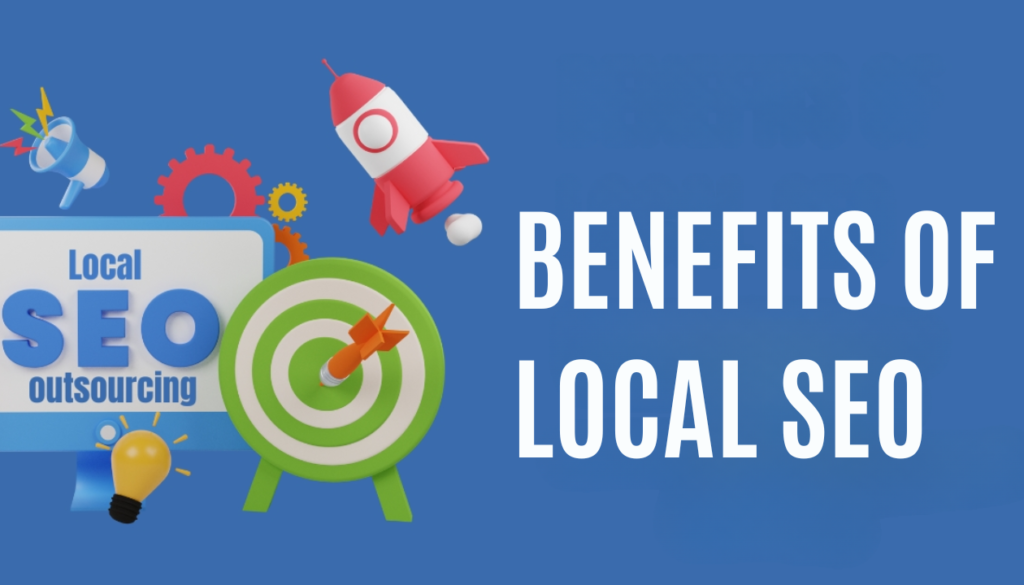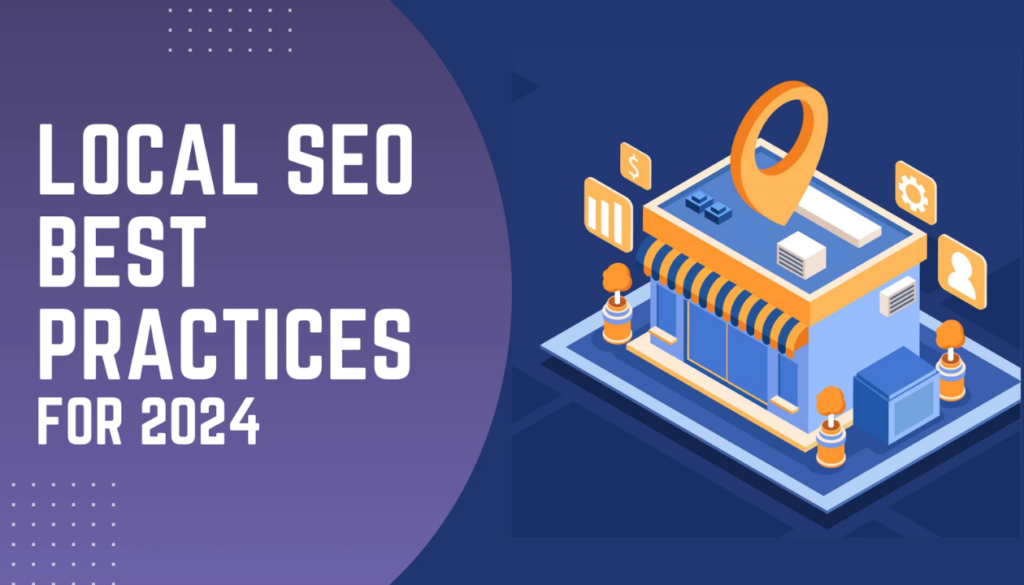In today’s digital age, having a strong online presence is crucial for any business, especially for those targeting local customers. Local SEO (Search Engine Optimization) is a powerful tool that helps businesses improve their visibility in local search results, attracting more customers from their specific geographic area. This blog will explore how local SEO can help businesses grow locally, discussing key strategies, benefits, and best practices to enhance your local online presence.
Table of Contents
1. What is Local SEO?
Local SEO is the practice of optimising your online presence to attract more business from relevant local searches. These searches take place on Google and other search engines. Local SEO helps your business appear in local search results when potential customers are looking for services or products you offer in your area.
2. Benefits of Local SEO

A. Increased Online Visibility
Local SEO enhances your business’s visibility in local search results. When potential customers search for services or products in their vicinity, local SEO helps ensure your business appears at the top of these search results, increasing the likelihood of attracting local customers.
B. Targeted Traffic
Local SEO drives targeted traffic to your website. This means the people visiting your site are more likely to be interested in your offerings and are within your service area, increasing the chances of conversions.
C. Improved Local Engagement
By optimising your business for local searches, you can engage more effectively with your local audience. This engagement can lead to increased customer loyalty and more positive reviews, further enhancing your local reputation.
D. Higher Conversion Rates
Local searches often have higher intent. People searching for local businesses are usually ready to make a purchase or visit a store, leading to higher conversion rates for businesses that rank well in local search results.
E. Cost-Effective Marketing
Local SEO is a cost-effective marketing strategy. Unlike traditional advertising methods, local SEO targets people who are already looking for your products or services, providing a higher return on investment.
3. Key Strategies for Local SEO
A. Optimize Google My Business
Google My Business (GMB) is a free tool that allows businesses to manage their online presence on Google, including Search and Maps. Ensure your GMB profile is complete and accurate, including your business name, address, phone number, website, and business hours. Regularly update your profile with photos, posts, and reviews.
B. Local Keywords
Use local keywords throughout your website content, meta descriptions, and titles. These keywords should include your city or region and the services you offer. For example, “plumber in New York City” or “best pizza in Chicago.”
C. NAP Consistency
NAP stands for Name, Address, and Phone number. Ensure your NAP information is consistent across all online platforms, including your website, social media profiles, and online directories. Inconsistent information can confuse search engines and potential customers.
D. Local Citations
A local citation is any online mention of your business’s NAP information. Get your business listed on reputable local directories and websites such as Yelp, TripAdvisor, and local chamber of commerce sites. Ensure all listings are accurate and consistent.
E. Customer Reviews
Encourage satisfied customers to leave positive reviews on your Google My Business profile and other review sites. Respond to reviews promptly, thanking customers for positive feedback and addressing any negative reviews professionally. Positive reviews can boost your local SEO rankings and attract more customers.
Read More :- How Off-Page SEO Drives Organic Business Growth , How Technical SEO Helps Businesses Achieve Organic Growth
4. Best Practices for Local SEO

A. Mobile Optimization
Ensure your website is mobile-friendly. Many local searches are conducted on mobile devices, so a mobile-optimised site provides a better user experience and can improve your local search rankings.
B. Quality Content
Create high-quality, relevant content that addresses the needs and interests of your local audience. Blog posts, articles, and videos that focus on local events, news, and activities can attract local visitors and improve your local SEO.
C. Local Backlinks
Backlinks from local websites and organizations can boost your local SEO. Partner with local businesses, sponsor local events, and participate in community activities to earn valuable local backlinks.
D. Social Media Engagement
Actively engage with your local audience on social media platforms. Share local news, events, and promotions, and interact with followers to build a strong local community around your brand.
E. Structured Data Markup
Implement structured data markup (schema) on your website to help search engines understand your business information better. This can improve your chances of appearing in rich snippets and local search results.
Conclusion
Local SEO is a powerful tool for businesses looking to grow locally. By optimizing your online presence for local searches, you can increase your visibility, attract targeted traffic, and engage with your local audience more effectively. Implementing key strategies such as optimizing your Google My Business profile, using local keywords, and encouraging customer reviews can significantly enhance your local SEO efforts. By following best practices and staying up-to-date with local SEO trends, you can drive organic growth and establish a strong local presence for your business.
Learn By Our Mentors
What is the role of Google reviews in local SEO?
What is the practice of “geo-fencing” in Local SEO?
Frequently Asked Questions
1. What is local SEO?
Ans. Local SEO is the practice of optimizing your online presence to attract more business from relevant local searches. It helps your business appear in local search results when potential customers are looking for services or products in your area.
2. How does Google My Business help with local SEO?
Ans. Google My Business (GMB) is a free tool that allows businesses to manage their online presence on Google. A complete and optimised GMB profile can enhance your visibility in local search results, making it easier for local customers to find your business.
3. Why is NAP consistency important for local SEO?
Ans. NAP stands for Name, Address, and Phone number. Consistent NAP information across all online platforms helps search engines and potential customers trust your business information, improving your local SEO rankings.
4. How can customer reviews impact local SEO?
Ans. Positive customer reviews can boost your local SEO rankings and attract more customers. Encouraging satisfied customers to leave reviews and responding to them promptly can enhance your online reputation and visibility.
5. What are local citations, and why are they important?
Ans. Local citations are online mentions of your business’s NAP information. Getting listed on reputable local directories and websites helps improve your local SEO by increasing your business’s visibility and trustworthiness.
